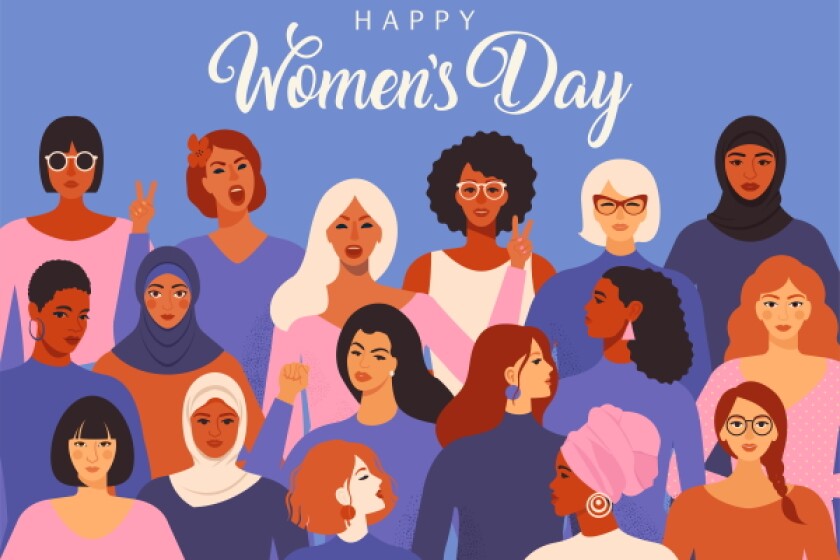The UK Innovation Strategy sets out the vision for the UK to be a global hub for innovation by 2035. By turning world-leading science and ideas into solutions, the UK aims to become a science superpower. The role of the UK Intellectual Property Office (UKIPO) is to make life better through IP, and intellectual property is key to increasing the impact of these solutions and achieving commercial success. To do this and make the most of creativity and innovation, we need to ensure the IP framework is accessible and effective for everyone. Then we can ensure the best ideas and technologies are able to drive economic growth and improve society for us all.
However, research carried out by the UKIPO suggests that we are falling short of that goal. Between 1998 and 2017, the proportion of female inventors worldwide only rose from 6.8% to 12.7%. The proportion of patent applications that named a woman among their inventors rose from 12% to 21% over the same period, and the proportion of applications with at least as many female inventors as males rose from 3% to 8%. Although we’re moving in the right direction, how can we go faster? In biotechnology, pharmaceuticals and organic chemistry women have contributed to approximately half of patent applications, so what can we do to help other sectors catch up?
There are a number of reasons why women are underrepresented in many science, technology, engineering and maths (STEM) careers, and by extension in some fields of IP such as patents. According to Women in Tech, influences during education mean that 80% of boys who study beyond GCSE level study a STEM subject, compared to 35% of girls. And according to UCAS data, 35% of STEM students in higher education in the UK are women. The language used in job adverts and role descriptions can be dissuasive, and an under-representation of women in visible STEM and leadership roles can be off-putting. How can we put this right?
The UKIPO has a strong record of taking steps towards a more inclusive future. We use outreach programmes to increase interest in STEM and IP in schools and colleges including specific events for girls to experience science hands-on, run by our staff. We have helped over a thousand people to learn computer programming in conjunction with Code First Girls, a social enterprise. We also work with organisations such as Women in Science and Engineering and the Government Science and Engineering Profession to share experiences and resources to improve prospects for those looking to join, or already in, STEM and IP roles. Last year we offered six out of seven places to women on our STEM returners programme for people looking to close a career gap, and we are about to launch a cross-government mentoring scheme for women in STEM roles. We also have a commitment to our people to be a brilliant place to work, which includes a range of flexible working options and staff networks for women and carers, among others, to support people with their work-life balance and offer a safe space to share and talk.
Diversity goals
Increasing diversity in STEM and IP won’t happen overnight, but it is happening. Women occupy 22% of STEM roles in the UKIPO, compared to 19% in 2020, and as a result our mean gender pay gap, which is a consequence of the gender split within our higher paid specialist roles, is coming down. It has reduced from 22% to 18% over the last four years. But there’s a long way to go, which is why we are continuing to stretch our ambitions and work with organisations such as IP Inclusive to make and sustain change through outcome-focused leadership and practical actions on the ground.
As Andrea Brewster, lead executive officer of IP Inclusive, said: “We know women are not yet well enough represented in IP – as inventors and creators, IP owners or the professionals who support them – but we also know there’s a strong desire throughout the UK’s IP sector to change that for the better. The greater our gender diversity, the more innovative and productive we will be. So IP Inclusive has been delighted to work alongside the UKIPO to improve access to the IP professions for women and ensure they can flourish when they’re here.”
By working in collaborations and partnerships, embedding inclusive behaviours, role-modelling personal allyship and delivering practical actions, we believe we can improve gender equality in IP.
Today, on International Women’s Day, the UKIPO is proud to publish a joint statement with other national intellectual property offices and the EPO to pledge support for women in creativity and innovation. The theme is “gender equality for a sustainable tomorrow”, and the participating offices are committed to share ideas, resources and successes to increase access to IP for all genders.
The UKIPO is aiming to help make STEM the right choice for more people, and to improve awareness and understanding of IP as a career and as a valuable tool for innovation and creativity. By taking more steps in the right direction, we aim to tip the gender balance in favour of everybody.
Tim Moss is CEO of the UKIPO.










